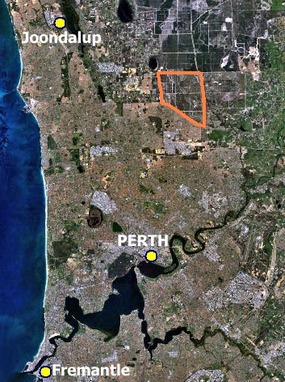CULLACABARDEE

Tribal Sovereign Elder Clem Riley of the Cullacabardee Aboriginal Community contacted the Nyoongar Tent Embassy to ask for information to help with issues the Cullacabardee community were facing, which included problems with housing. The Nyoongar Tent Embassy has contacted the Equal Opportunities Commission to request a roundtable discussion with the Department of Housing regarding maintenance issues and the substandard quality of housing at Cullacabardee.
Nyoongar Tent Embassy members also attended the launch of the Equal Opportunity Commission’s report into the WA Department of Housing’s Disruptive Behaviour Management Strategy (the ‘three strikes’ system) on July 24th 2013. Currently, three minor complaints against a tenant within a 12-month period will result in eviction proceedings. The report investigated complaints by tenants against the strategy and recommendations by Shelter WA.
The Equal Opportunities Commission reported that the current system is discriminatory on the grounds of race, age, sex and impairment and does not take into consideration cultural practices and obligations or unsubstantiated complaints filed by neighbours solely on the grounds of racism. The report recommended the introduction of a right to appeal complaints, and that any unsubstantiated complaints should not be recorded on a tenants file.
The Nyoongar Tent Embassy is looking at existing government policies and addressing the issues experienced at Cullacabardee.
Article 25(1) of the Universal Declaration of Human Rights provides that:
Everyone has the right to a standard of living adequate for the health and well-being of himself and of his family, including food, clothing, housing and medical care and necessary social services, and the right to security in the event of unemployment, sickness, disability, widowhood, old age or other lack of livelihood in circumstances beyond his control.
The Equal Opportunities Commission report also cited a study by the United Nations Housing Rights Programme, which found that Indigenous Peoples are more likely to suffer from inadequate housing conditions and often experience systemic discrimination in the housing market.
Nyoongar Tent Embassy members also attended the launch of the Equal Opportunity Commission’s report into the WA Department of Housing’s Disruptive Behaviour Management Strategy (the ‘three strikes’ system) on July 24th 2013. Currently, three minor complaints against a tenant within a 12-month period will result in eviction proceedings. The report investigated complaints by tenants against the strategy and recommendations by Shelter WA.
The Equal Opportunities Commission reported that the current system is discriminatory on the grounds of race, age, sex and impairment and does not take into consideration cultural practices and obligations or unsubstantiated complaints filed by neighbours solely on the grounds of racism. The report recommended the introduction of a right to appeal complaints, and that any unsubstantiated complaints should not be recorded on a tenants file.
The Nyoongar Tent Embassy is looking at existing government policies and addressing the issues experienced at Cullacabardee.
Article 25(1) of the Universal Declaration of Human Rights provides that:
Everyone has the right to a standard of living adequate for the health and well-being of himself and of his family, including food, clothing, housing and medical care and necessary social services, and the right to security in the event of unemployment, sickness, disability, widowhood, old age or other lack of livelihood in circumstances beyond his control.
The Equal Opportunities Commission report also cited a study by the United Nations Housing Rights Programme, which found that Indigenous Peoples are more likely to suffer from inadequate housing conditions and often experience systemic discrimination in the housing market.
